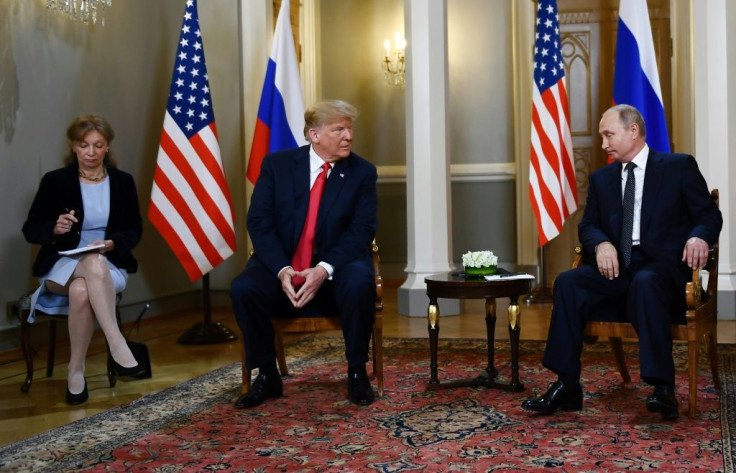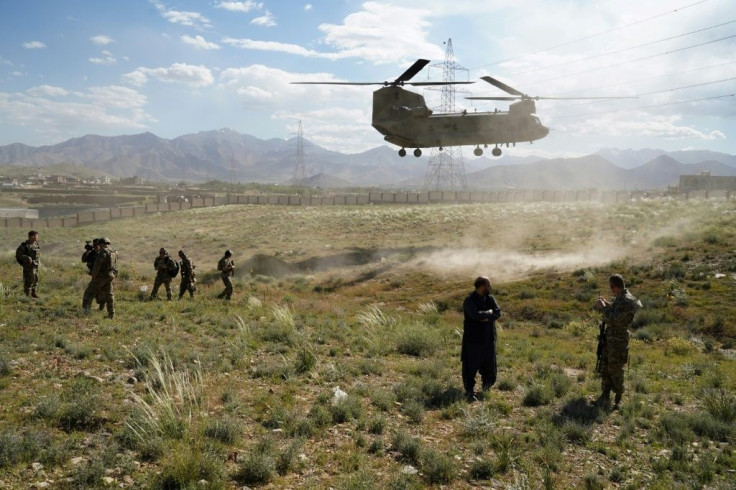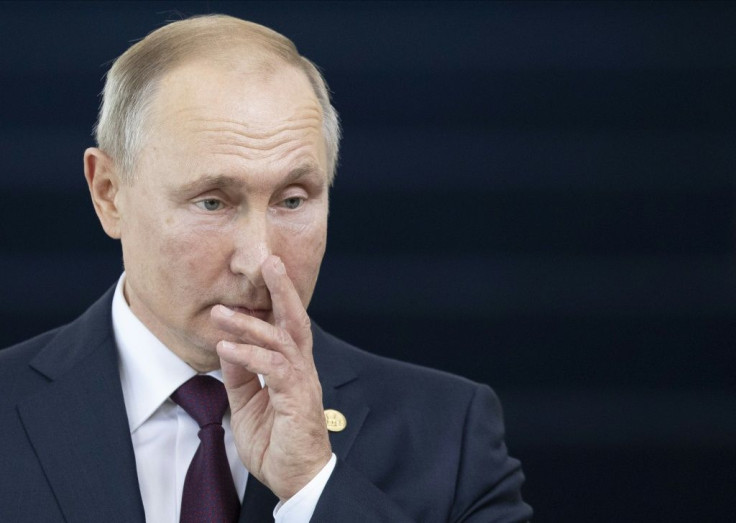Once Again, US-Russia Tensions Soar Despite Trump
Donald Trump has spent much of the past four years musing about warmer ties with Russia. But explosive new allegations show that relations may only get worse.
Top Democrats have demanded answers and even some Republicans have urged retaliation after reports, first published by The New York Times, that a Russian unit offered rewards to Taliban-linked militants to kill US-led forces in Afghanistan.
The furor comes weeks after Trump again offered an olive branch to President Vladimir Putin, speaking of inviting him to an expanded summit of the Group of Seven, from which Russia was kicked out over its 2014 takeover of Crimea.
House Speaker Nancy Pelosi, the top Democrat in Washington, said that with Trump, "all roads lead to Putin."

Senator Cory Gardner, a Republican in a tight re-election bid, said he would push to declare Russia a state sponsor of terrorism -- a designation with far-reaching legal implications.
Trump said he was not briefed on the Afghanistan charges. He has scoffed in the past at US intelligence, particularly its finding that Russia interfered to sway the 2016 election to him over Hillary Clinton.
In one of the rare moments where he faced severe criticism within Republican ranks, Trump appeared to take Putin at his word during a 2018 summit that Russia did not meddle in the election.

Every US president since the end of the Cold War has taken office seeking better relations with Russia -- but with mixed results.
James Jay Carafano of the conservative Heritage Foundation, who served on Trump's presidential transition team, said Trump's Russia promises in 2016 were "just as superficial as everybody else's."
"He didn't have a secret plan to have better relations with Russia," Carafano said.
"If you want a better relationship with Russia you would need a different Putin. And this is the problem everybody has, is you don't get a different Putin," he said.

Putin, a Soviet-era intelligence officer who has spoken of restoring lost Russian glory, has been president or prime minister since 1999 -- and a referendum Wednesday could let him stay in power until 2036.
"There's nothing that we really need from the Russians that we can't live without. And there's nothing that Russians can really do for us that is worth bargaining for," Carafano said.
Reports said US intelligence was assessing the Russian unit's motivations in Afghanistan, from seeking to bog down the United States in a war that Trump is seeking to end, to retaliation for US attacks on Russian mercenaries in Syria.
Matthew Rojansky, director of the Kennan Institute at the Woodrow Wilson International Center for Scholars, doubted that Russia still put much hope in Trump, who faces a difficult re-election path in November and, whatever his professed fondness for Putin, has repeatedly approved sanctions against Russia over Ukraine.
Rojansky said the purported bounties in Afghanistan showed how far the US-Russia relationship had deteriorated -- and how sanctions had not deterred Moscow.
"To be appalled and caught off-guard that the Russians are looking for ways to kill Americans, I think you haven't been paying attention. We're in a conflict with these people," Rojansky said.
And after six years of US sanctions, the United States has learned "that they hurt Russia to some extent, but nowhere near enough to change Russia's behavior."
Rojansky said the United States could make clear that there would be a dire cost to further Russian actions -- such as targeting the unit blamed for the bounties in Afghanistan.
But he noted that even the United States and Soviet Union maintained dialogue in the darkest days of the Cold War.
The two nations opened talks last week on the New START nuclear treaty and, while they made limited progress, their foreign ministers could use the issue as a pretext to meet, he said.
"If you're looking for a door to walk through, that's the one," Rojansky said.





















